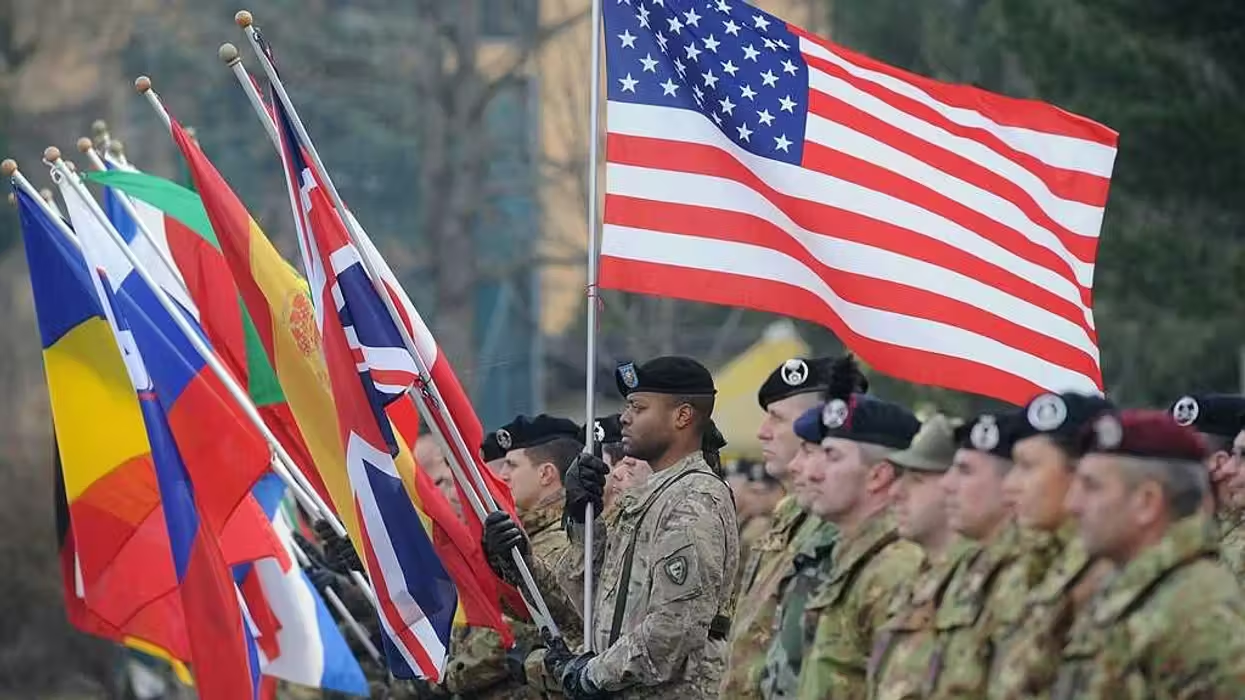© 2025 Blaze Media LLC. All rights reserved.
Shocking Benghazi Report Blames State Dept.: U.S. Gov't 'Failed Tragically' to Protect Americans
December 31, 2012
"...there was a large amount of evidence...that Benghazi was increasingly dangerous and unstable..."
A shocking new Senate report on the Benghazi, Libya, attack that claimed the lives of four Americans on Sept. 11, including U.S. Ambassador Christopher Stevens, contends that the State Department is at fault for failing to tackle security threats in the days and months leading up to the deadly assault. Additionally, the document concludes by noting that the horrific event is evidence that the U.S. battle with "Islamist extremists and terrorists is not over."
The report, "Flashing Red: A Special Report On The Terrorist Attack At Benghazi," which came from the Senate Homeland Security and Governmental Affairs Committee, charges that, considering unpredictable chaos in the region, the State Department did not adequately protect the compound or respond to challenges facing it leading up to the attack. While no specific threats were waged against U.S. staffers in Libya prior to Sept. 11, the report essentially charges that the U.S. government, taking information and developments into account, should have taken grander steps to protect workers.
 U.S. Secretary of State Hillary Clinton (R) presents a Common Ground Award to Anne Stevens (L), sister of the U.S. Ambassador to Libya Christopher Stevens, during a ceremony at the Carnegie Institution for Science November 8, 2012 in Washington, DC. Anne Stevens accepted the award on behalf of her late brother, who was killed in the assault on the U.S. consulate in Benghazi, Libya September 11, 2012. Credit: Getty Images
U.S. Secretary of State Hillary Clinton (R) presents a Common Ground Award to Anne Stevens (L), sister of the U.S. Ambassador to Libya Christopher Stevens, during a ceremony at the Carnegie Institution for Science November 8, 2012 in Washington, DC. Anne Stevens accepted the award on behalf of her late brother, who was killed in the assault on the U.S. consulate in Benghazi, Libya September 11, 2012. Credit: Getty Images
"In the months leading up to the attack on the Temporary Mission Facility in Benghazi, there was a large amount of evidence gathered by the U.S. Intelligence Community (IC) and from open sources that Benghazi was increasingly dangerous and unstable, and that a significant attack against American personnel there was becoming much more likely," the study's first finding contends.
The report went on to claim that information about threats was shared within the Intelligence Community (IC) and with key personnel at the Department of State. However, despite knowledge that the situation was worsening, it "did not lead to a commensurate increase in security at Benghazi nor to a decision to close the American mission there." These actions, the Senate committee claims, would have been justified by the intelligence findings.
Another of the statements in the document reads, "The absence of specific intelligence about an imminent attack should not have prevented the Department of State from taking more effective steps to protect its personnel and facilities in Benghazi."
With the Libyan government unable to provide adequate security, the need for greater U.S.-led provisions was obvious, but according to the study -- not undertaken. In addition to laying out its findings, the report also provides recommendations to prevent future events like the Benghazi terror attack from unfolding.
"We hope this report will help contribute to the ongoing discussion that our nation must have about how best to protect the brave men and women who serve our country abroad and how to win this war that will continue for years to come," the document concludes, noting that the U.S. government "failed tragically" to protect Americans serving abroad in Libya.
Read the document in its entirety here. This report follows an independent investigation earlier this month that found systematic management and leadership failures in the wake of the Benghazi attack.
--
Related:
Want to leave a tip?
We answer to you. Help keep our content free of advertisers and big tech censorship by leaving a tip today.
Want to join the conversation?
Already a subscriber?
Billy Hallowell is a digital TV host and interviewer for Faithwire and CBN News and the co-host of CBN’s "Quick Start Podcast."
Billy Hallowell
Billy Hallowell is a digital TV host and interviewer for Faithwire and CBN News and the co-host of CBN’s "Quick Start Podcast."
more stories
Sign up for the Blaze newsletter
By signing up, you agree to our Privacy Policy and Terms of Use, and agree to receive content that may sometimes include advertisements. You may opt out at any time.
Related Content
© 2025 Blaze Media LLC. All rights reserved.
Get the stories that matter most delivered directly to your inbox.
By signing up, you agree to our Privacy Policy and Terms of Use, and agree to receive content that may sometimes include advertisements. You may opt out at any time.






